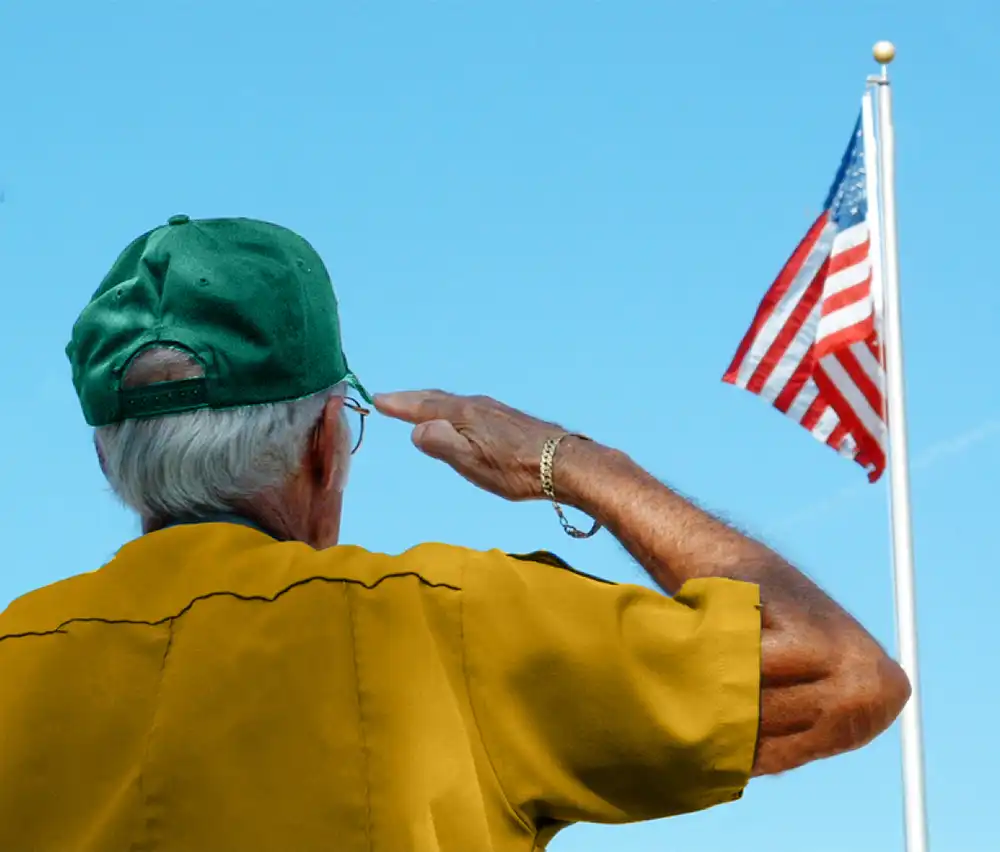Home Care Resources
- SUPPORT FOR EDERLY VETERANS
Veterans Benefits
Not sure if you qualify for veterans benefits? Fortunately, many veterans from the U.S. military, including Air Force, Marine Corps, Navy, Coast Guard, or Army are eligible for in-home supportive care benefits through the Veterans Administration (VA).
What this means is that if your loved one served in the U.S. Military, they may be eligible for financial assistance to help pay for their in-home senior care services. Veterans may qualify for health benefits or personal home care through the Veterans Administration if they meet certain criteria.

- Served in the active military, air services, or naval and separated under any condition other than dishonorable.
- Former or current members of the National Guard or Reserves who were called to active duty (other than for training only) by federal order. And must have completed the full period for which they were called or ordered to active duty.
The Importance of In-Home Care for Veteran Seniors
As our veteran population continues to age, ensuring they receive compassionate and dignified care is more important than ever. In-home care stands out as a vital solution that honors the service and sacrifices of senior veterans by supporting their health, independence, and well-being in the comfort of their own homes.
Providing in-home care to senior veterans is more than a healthcare service. It’s also a meaningful tribute to their commitment and courage. By helping them age safely and comfortably in their own homes, we not only support their physical needs but also uphold the dignity and respect they deserve.- VETERANS BENEFITS
Frequently Asked Questions
How does veterans benefits work?
U.S. military veterans may qualify for personal care support through the Aid and Attendance or Veteran-Directed Care programs.
Aid and Attendance Benefits
This program provides additional monthly payments to qualifying veterans (or their surviving spouses) who require help with daily living activities. Examples include bathing, dressing, or eating. Veterans must have served at least 90 days of active duty, including one day during a wartime period. The veteran must also meet financial and medical eligibility requirements.Veteran-Directed Care (VDC) Program
The VDC offers veterans more control over their care by allowing them to choose their caregivers and manage a flexible budget. It's a self-directed program that provides a monthly budget veterans can use for in-home personal care services.When should seniors apply for VA benefits?
How can families apply for VA benefits?
Families can apply for personal care benefits through the Veterans Administration by completing the 10-10EZ form and sending it to the VA. Also, veterans can visit a local Veterans Center and speak with a case manager, discharge planner, social worker, or service coordinator.
Be sure to take the necessary documents with you such as your loved one's veteran status and identification. Your service coordinator will also provide more information about other necessary documentation like medical records or financial statements.
Can we get started with in-home care today?
How can Seaside Senior Services help with veterans care at home?
- Light housekeeping
- Dressing
- Meal preparation
- Grooming
- Toileting
- Companionship
- Bathing
